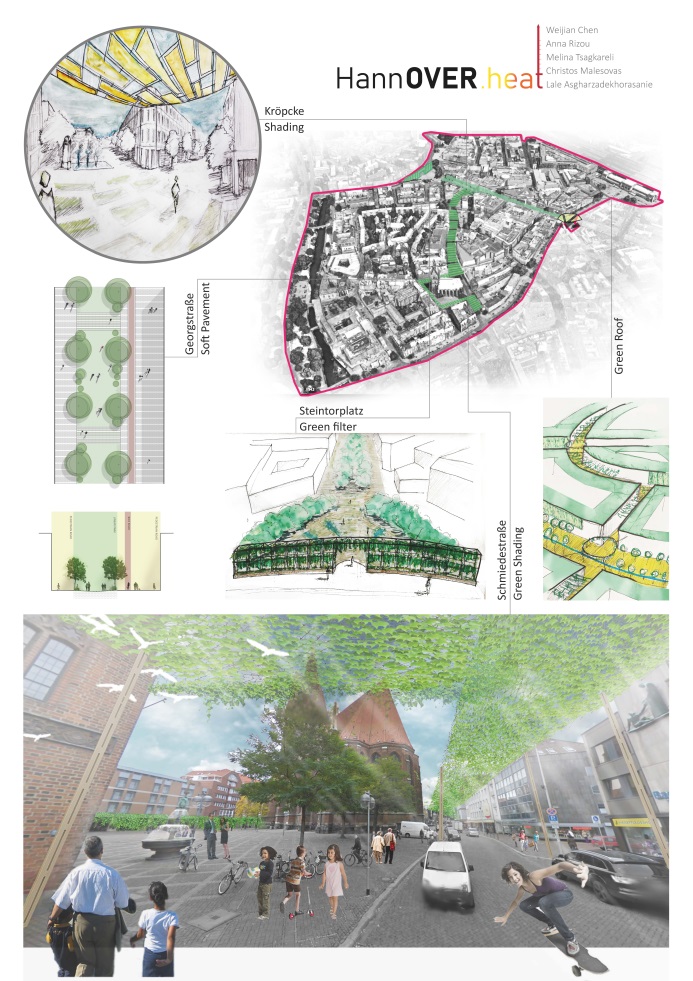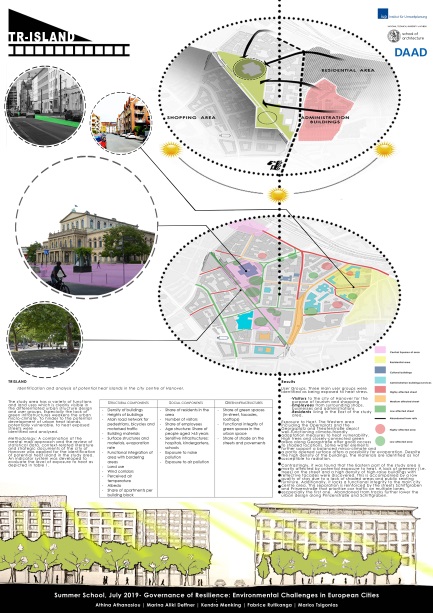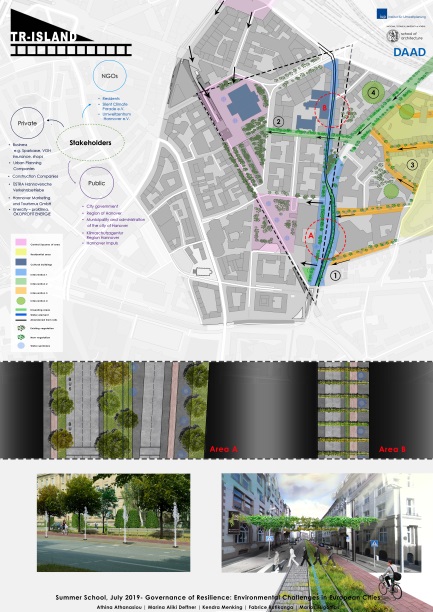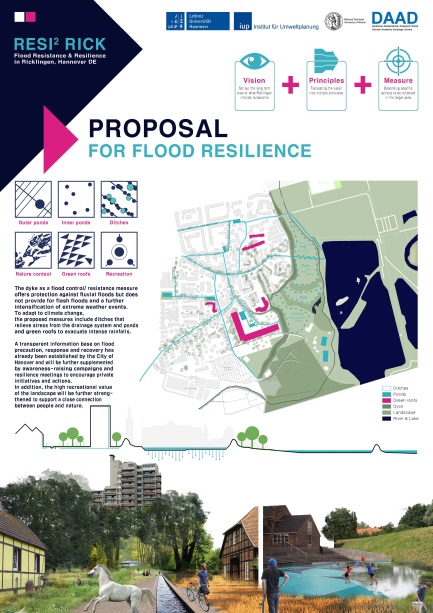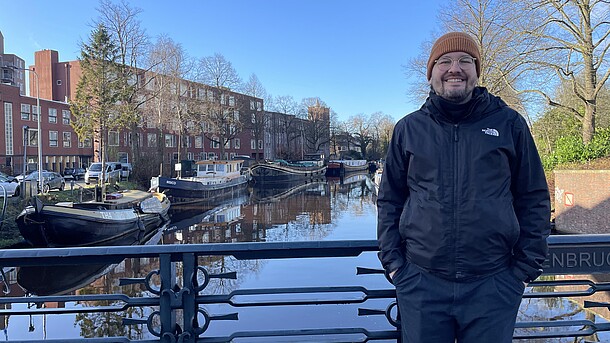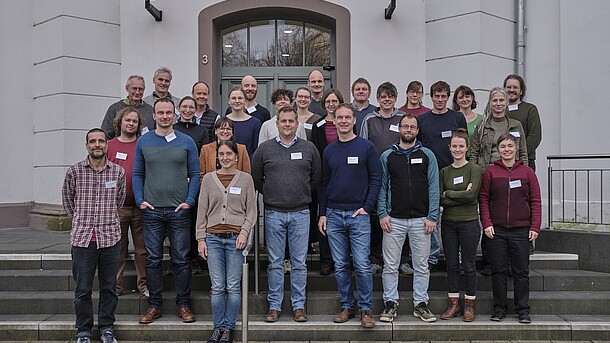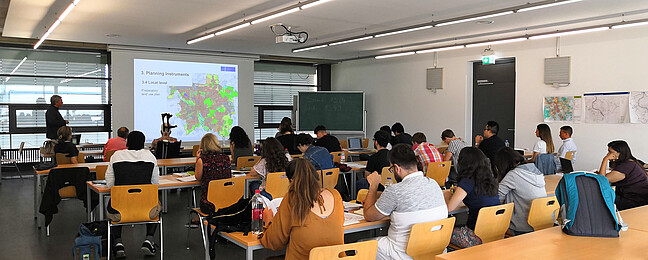
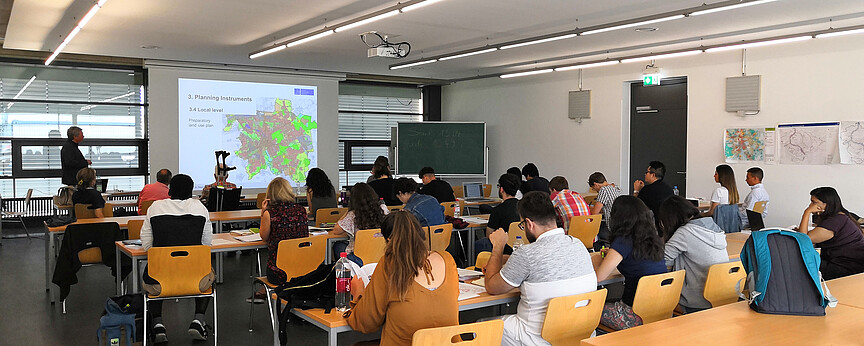
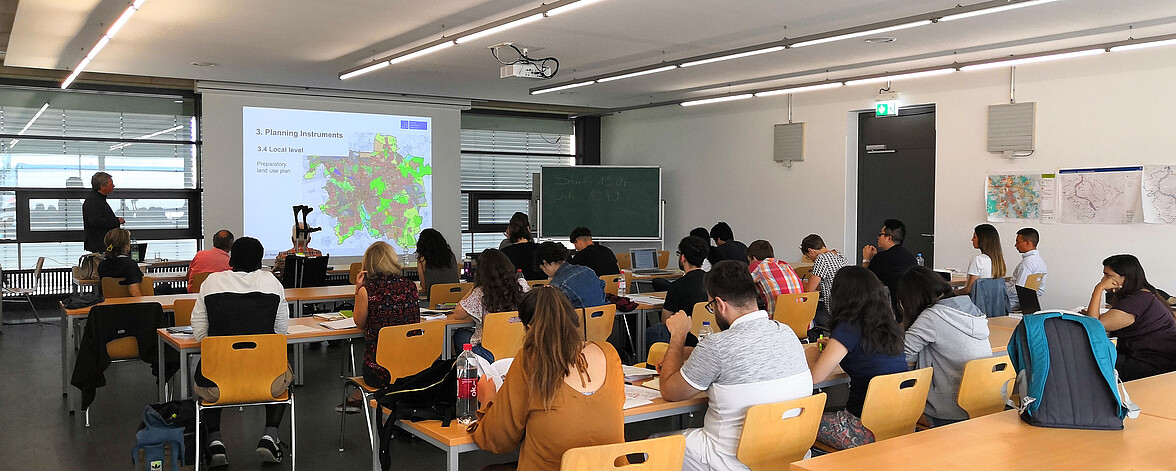
Summer School 2019 in Hanover
From 22nd July to 26th July, the Summer School took place in Hanover with this year’s topic being resilience and governance.
The Summer School is part of the HeKriS project framework, which is ongoing since 2017. This project aims to develop planning strategies and creative measures to face challenges of resilience in European cities. HeKriS is a cooperation program between the Leibniz University of Hanover (LUH) and the National Technical University of Athens (NTUA) and is funded by the German Academic Exchange Service (DAAD).
The Summer School 2019 is a pillar of the joint educational and research activities between these two universities and more specifically the Faculty of Architecture and Landscape of the LUH and the School of Architecture of the NTUA.
The primary task of the Summer School 2019 was to have the students participating conduct their research analysis and develop planning strategies and concepts; which deal with the aspects of the governance of resilience. The students investigate short and long term strategies to implement within the greater urban complex of Hannover. In particular, the two topics examined by participants were:
- Heat islands
- Flooding
The topics mentioned above present challenges to be tackled to ensure a resilient Hanover city within the projected 100- and 200- year span (HQ 100 and HQ 200).
The main task was to find solutions in which, both challenges, overheating, and flooding could be curbed and efficiently managed within the areas of the Hanover city assigned. Within the Summer School’s program, thirteen master degree students from LUH (study programs – Environmental Planning, Landscape Architecture and European Master in Territorial Development) and eleven students of the NTUA (study programme – Architecture) worked together in five interdisciplinary and international groups to develop detailed analyses and concepts of their chosen areas to encounter the challenges mentioned above. The students tried to combine solutions of governance as well as practical ones; they experimented in particular with design concepts such as planting of trees, unsealing of paved surfaces, the introduction of green canopies, green roofs and facades as well as the creation of planned flooding zones.
The implementation of the educational program was based on the participants’ work and enriched by in situ data collection in the five distinct study areas. Furthermore, several lectures that took place in this Summer School week offered a better understanding of this complex topic. The lectures were held both by local and international researchers and teachers.
The first lecture was held by Prof. Dr Rainer Danielzyk of the Institute of Environmental Planning of the LUH, who presented the “Territorial development and planning system in Germany” which offered a comprehensive view of the German decision-making structures and processes. On the next step, Prof. Dr Lutz Katzschner from the Kassel University elaborated extensively on the “Change in Urban Climates and Urban Planning”, giving the students a hands-on understanding of climate change within the urban context.
On the second day of the Summer School, the regional authority’s representative Julia Michalczyk presented her master thesis work, which was conducted on the topic of the urban vulnerability of the Hannover area. Mrs Julia Michalczyk explained her analysis of heat-based paradigms.
Two more lectures took place on the 23rd of July, which was given by two Greek Professors of the NTUA. Firstly, Prof. Dr Thanos Pagonis discussed the challenges faced by central Athens and shared the experience of a recently completed research program on the regeneration of Lycabettus hill as an example of resilient planning. Continuing with Prof. Dr Riva Lava which gave a detailed account on a series of NTUA projects aiming at raising public awareness for the island of Santorini, which is facing numerous challenges – among them, physical threats, urban sprawl and massive tourist flows. To obtain a better understanding for the Hannover context regarding climate change, Mr Dirk Schmidt from the Climate Control Department of the City of Hanover and Dr Frank Scholles from the Institute of Environmental Planning of the LUH presented more detailed knowledge on the topic on Wednesday.
Coming to the end of the Summer School, a joint excursion took place to the Herrenhäuser Gärten. Prof. Dr Wolschke-Bulmahn welcomed the workshop’s participants and offered a guided tour through the gardens. During the trip, students were able to learn about the reconstruction of the famous gardens and visit vital spots of the historical complex.
The DAAD partnership between the two universities will continue with the LUH students' excursion to Athens and Thessaloniki in early September 2019.










